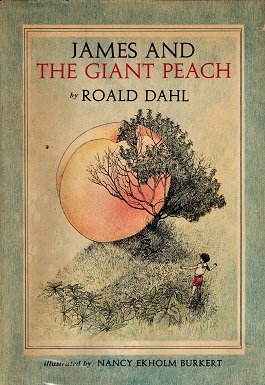Dante
Explore the timeline of Dante Alighieri, the renowned Italian poet, from his birth in 1265 to his major milestones, including the creation of 'The Divine Comedy' and his impact on literature and culture throughout the Middle Ages.
Birth of Dante Alighieri
Dante Alighieri, known as Italy's Supreme Poet, was born in Florence, Republic of Florence, in the year 1265. He is celebrated for composing 'The Divine Comedy', a masterpiece of world literature. Dante’s early life influenced his literary career, being inspired by the political chaos of his time, his love for Beatrice, and his extensive education in the classics and scholastic philosophy.
Dante meets Beatrice Portinari
In 1274, Dante met Beatrice Portinari at the tender age of nine. This encounter would profoundly affect him, inspiring much of his later work, including 'La Vita Nuova' and 'The Divine Comedy.' For Dante, Beatrice symbolized beauty, virtue, and divine love, and her influence manifests in his vision of Paradise. She became an enduring symbol in Dante's poetry, representing idealized love and guiding him in his spiritual journey.
Death of Beatrice Portinari
Beatrice Portinari's death in 1290 deeply affected Dante and cemented her place in his work. Her passing prompted him to explore themes of love, loss, and redemption in his poetry. Beatrice's death is believed to have inspired Dante to compose 'La Vita Nuova', a collection of poems and prose detailing his love for her and his mourning. Her spiritual presence profoundly influences his later work, especially 'The Divine Comedy'.
Dante's Exile from Florence
In January 1302, Dante Alighieri was exiled from Florence due to charges of corruption and financial wrongdoing, accusations often related to the fierce political rivalries between the Guelfs and Ghibellines. His exile, originally meant to last two years, became permanent, and he spent the rest of his life wandering through Italy. This experience influenced his writing, coloring the themes of justice and personal suffering in 'The Divine Comedy'.
Completion of the 'Inferno'
Dante completed the 'Inferno', the first part of 'The Divine Comedy', around 1314. In this epic poem, Dante travels through the nine circles of Hell, guided by the Roman poet Virgil. Each circle represents a different sin, with vivid descriptions of the punishments awaiting sinners. The 'Inferno' is famous for its allegorical nature and its critique of Italian society, religion, and politics, showcasing Dante's skills in allegory and language.
Publication of the 'Paradiso'
The 'Paradiso', the third and final part of Dante's 'The Divine Comedy', was published in 1320. This work explores themes of divine love, wisdom, and redemption, as Dante journeys through the heavens guided by Beatrice. The 'Paradiso' concludes Dante’s literary exploration of human virtue and vice, and it reflects his theological and philosophical views on the soul's ascent to God. This ambitious work exemplifies Dante's mastery of poetic form and his profound spiritual insight.
Death of Dante Alighieri
Dante Alighieri died on September 13, 1321, in Ravenna, Italy. His death marked the end of a prolific literary and intellectual career, leaving behind a legacy that profoundly influenced Western literature and thought. Dante's burial in Ravenna commemorates his final years spent in the city, and he left an indelible mark with 'The Divine Comedy', which remains one of the greatest works of literature ever written. His philosophical and political insights remain subjects of study.
First Printed Edition of 'The Divine Comedy'
The first printed edition of Dante's 'The Divine Comedy' was completed in 1492 in Foligno, Italy, marking a significant step in the dissemination of his work. Printed by Johann Numeister and Evangelista Angelini, this edition made Dante's epic poem more accessible to the public and scholars, contributing to the spread of Renaissance humanism and the revival of classical learning. The proliferation of the printed text helped cement Dante's influence in literary history.
600th Anniversary of Dante's Birth
The 600th anniversary of Dante Alighieri's birth in 1865 was celebrated across Italy and Europe, marking a resurgence of interest in his life and works. Celebrations included ceremonies, publications, and the erection of statues, notably in Florence and Ravenna. This anniversary highlighted Dante's enduring influence on culture and literature, acknowledging his role as a formative figure in shaping the Italian language and his continuing impact on modern storytelling and poetic expression.
600th Anniversary of Dante's Death
The 600th anniversary of Dante's death in 1921 was commemorated with widespread celebrations and scholarly events, highlighting his monumental influence on Western culture. Italy held official ceremonies, cultural events, and academic conferences. New studies on Dante's works were published, reflecting his ongoing scholarly investigation and appreciation. These commemorations reaffirmed Dante's position as a central figure in world literature and continued to inspire interest in his life and legacy.
Frequently asked questions about Dante
Discover commonly asked questions regarding Dante. If there are any questions we may have overlooked, please let us know.
When did Dante Alighieri die?
When was Dante Alighieri born?
What are the major works of Dante and when were they written?
What is 'The Divine Comedy' about?
Related timelines
More timelines connected to Dante







